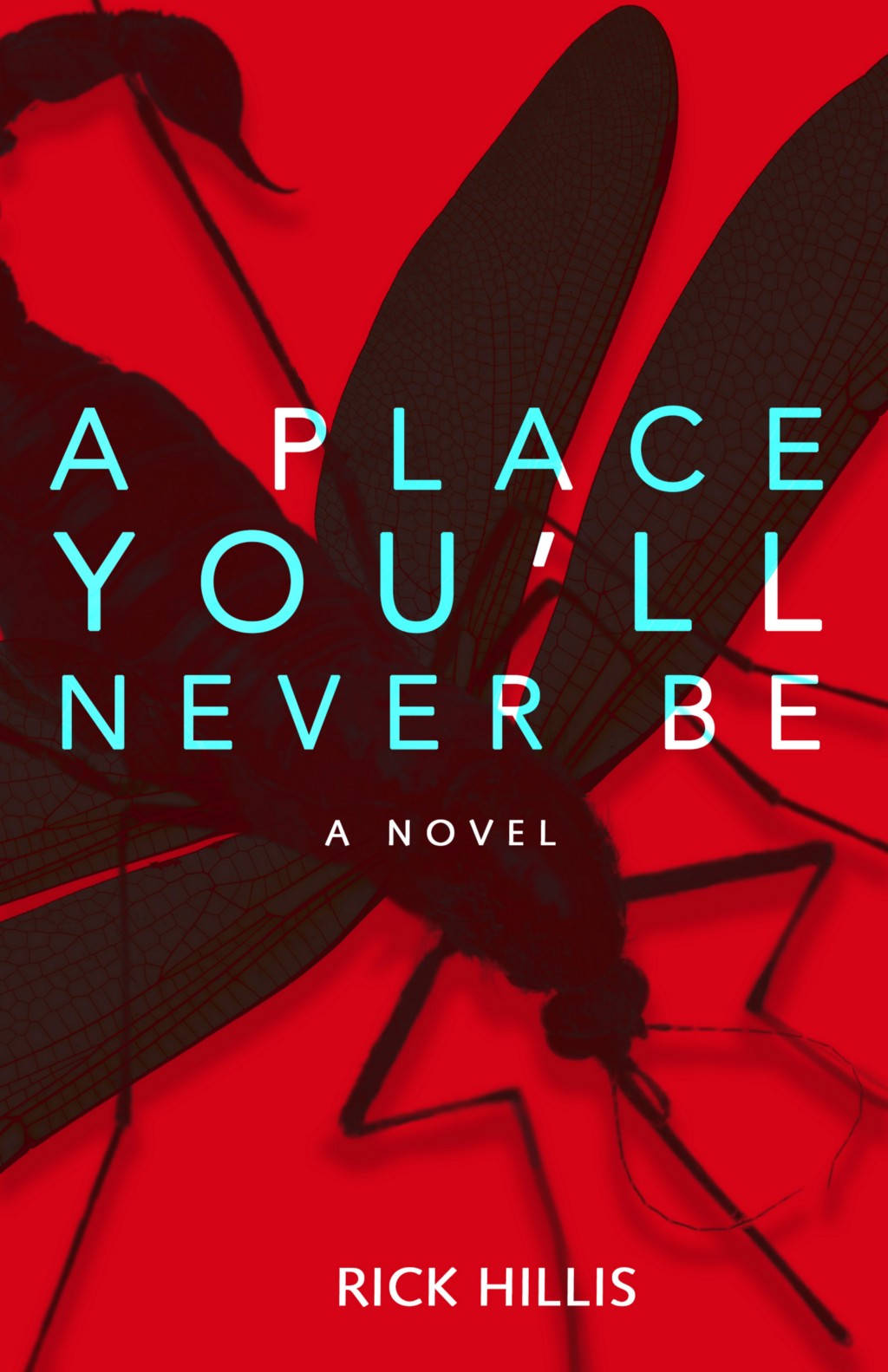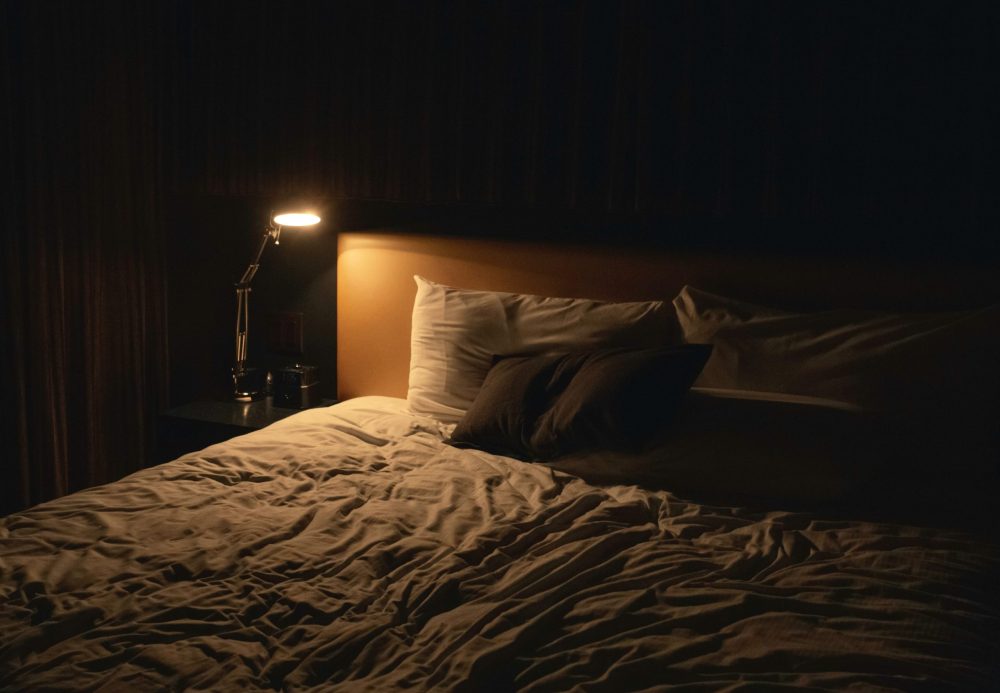Craft
My Husband’s Posthumous Novel Is My Last Gift to Him—And His Last Gift to Me
Publishing his work has let me reconnect with my own ability to write, and to live through grief

Last night a box of books was left above the bank of mailboxes in my apartment building. I wasn’t told when they would arrive, so I’m surprised to notice the box is for me. I carry it up the five flights of stairs in my new walk-up lifestyle, which gives you some time to consider a package’s weight, ponder what’s inside, what it means, what it will look like when the box is opened. Inside I know there are copies of my late husband’s novel that I’ve been shepherding through posthumous publication. But they are more than that. They’re evidence of a much longer project.
Perhaps it is not surprising that the desire to read or write was slow to return after my husband’s death. George Saunders has said, “Literature is a form of fondness-for-life. It is love for life taking verbal form.” And I always thought of my reading and writing as a way to live, a way to be observant and engage with the world around me, a way to care. I’ve thought of literature filling the same role for me as religion might for someone else. And then, I stopped caring. As people might turn their back on god after a senseless death, I could not open a book, and I certainly couldn’t strike up the kind of focus and attention to the world needed to write. With my husband, what we were writing and what we planned to write next was a way we marked time. It was a way to move through the world. Writing and books were central to our conversations. If we were playing music, songwriting became the subject. It always came back to writing. Of the things I wish I could tell my husband about the world since he left, the revelation of McDonald’s serving breakfast all day was only seconded when Bob Dylan won the Nobel Prize for Literature. How he wished for and would’ve loved this. How much he loved about life.
I always thought of my reading and writing as a way to live, a way to be observant and engage with the world around me, a way to care. And then, I stopped caring.
I often introduce myself now as what I used to be. I’ll say, I taught college in the Midwest for a decade. I used to live in New York before that. If this isn’t enough explanation for the inquisitive stranger or job interviewer, I’ll say, I’m a writer. So many writers in the city, this is often when their curiosity will wane, but sometimes the next question is what am I working on now, and this is when I feel guilty for using the present tense. So much is past tense these days. To tell any semblance of the truth would reveal many other things I used to be: a wife, a homeowner, a part of a community, someone with a clear identity. Maybe being a writer is in the past, too.

In the winter after my husband’s death I found his copy of Journal of a Novel in which John Steinbeck wrote to his editor every day before beginning his work on East of Eden. I knew this was one of the books that had sustained my husband in rural Saskatchewan with few writerly models around him, but I had never read it. I opened it one morning over my coffee, and without realizing it I had made a pact with myself to read a single entry from it every morning. And I started to think literature could matter again, because at least for those few minutes in which I read, it mattered to Steinbeck in how he sharpened his pencils and fretted over his scenes. It was a relief to see someone caring about something.
To tell any semblance of the truth would reveal many other things I used to be: a wife, a homeowner, a part of a community, someone with a clear identity. Maybe being a writer is in the past, too.
My husband and I were on a sabbatical when he died. I had my own writing projects, and he had plans to finish at least three of the many novels he’d been sitting on drafts of for way too many years. Perhaps prescient, there was suddenly a great urgency in his writing. We had places to work lined up through late spring. We had started in Marfa and were in the guesthouse of a writer friend of ours in New Mexico till Thanksgiving, then we had a beach house on St. George Island on the Gulf and then four months at the Wallace Stegner House in Eastend, Saskatchewan. My husband had plans for what he would finish in each place.
I followed most of our itinerary — I didn’t know what else to do — but of course nothing was as planned. At the beach house I imagined where we would have set up our workspaces. He’d want the extra bedroom with its own door to outside. He liked to wander and to nap when he was writing. But no writing happened there and no reading. I walked the empty, off-season island, which we usually visited in summer. Every day for a month I walked past the last house before the state park and saw the balcony where we had been married six and a half years earlier. Thirteen years total with him. No wonder, then, that as I walked I’d find myself collecting thoughts I absolutely had to remember to tell him later — not remembering the impossibility of this. Continuing into the park, there were no manmade structures for miles and most days I wouldn’t see a single soul. I’d feel shipwrecked, like I was in some other reality, and if I just kept going, I believe I thought I might find him or he might find me. Sometimes my legs would go limp under me, but I’d wobble on, staggering through the sand. All I knew was I just had to keep walking.

Up to five hours a day I walked that beach. And as I walked, I picked up and brought back so many shells that I covered the back deck of the house. Different types washed up in cycles. There was a day of big conks and an olive shell season and stretches of scallops and moon shells. I made nested sets of cockles. I’d run to the surf line when I saw the big ones being pulled in and out on the waves. Some days I was only interested in miniatures. I took on this collecting like it was my mission. I laid them out by type and color and size, till there was a huge mosaic that had to be dismantled when I left.
By the time I got to Eastend, where I was alone in the Stegner House for the last six weeks of the four months we had planned there, I’d been reading the Steinbeck for months and had managed to get through a couple of Stegner’s novels. I brought bins full of my husband’s manuscripts, and I started sorting: looking for what I could salvage, comparing drafts, and editing what I could. I decided to write to my husband, like Journal of a Novel, every day before I worked through his books. I’d chat with him about whatever was going on, like Steinbeck did to his editor, Pascal Covici. It would be the first writing I’d done since remarks I’d crafted for my husband’s memorial. I wrote him about everything I was doing, about my morning sessions with Steinbeck, about my workspace with a view of the Frenchman River that was right out back and how he’d love the town campground around the bend. He loved a good picnic table for reading and for doing sit-ups and pushups. It would’ve been the perfect place for him to wander. I told him about learning to play his guitar — the mandolin didn’t sound right by itself — and about drives I took: how I’d find most of his characters’ names in the windswept graveyard in his childhood town of Aneroid, about the miniature horses frolicking by the grain elevator there, and about the buffalo molting in the Grasslands and scraping gypsum from dinosaur bones.
I brought bins full of my husband’s manuscripts, and I started sorting: looking for what I could salvage, comparing drafts, and editing what I could.
I wrote to my husband about all this and about reading his marked-up copy of another book that had been important to him: Wolf Willow, a hybrid of memoir, historical fiction, and nonfiction by Wallace Stegner that focused on his childhood in that very house and the history of that very land. I’d saved it to read until I got there, and it was uncanny to read it in that house and in the land of both Stegner’s and my husband’s childhoods.
The stories my husband told about growing up in Saskatchewan were so exotic to me, they felt mythic: sporting a .22 at six years old to wander out into the prairie and shoot gophers, grandparents that homesteaded and didn’t yet have electricity when he was a child, snowdrifts in the kitchen and chemical toilets on the back porch, his father protecting him from rabid dogs and climbing electric poles during blizzards to repair the lines. Stegner’s childhood in that house, albeit half a century earlier than my husband’s stories, didn’t sound too different. Settlement came late to the southwest corner of Saskatchewan — Sitting Bull camped nearby when he fled north after the Battle of Little Bighorn — and less than forty years later Stegner’s father built their home in a small town that sprang up from the Mounted Police outpost that was formed to keep watch over Sitting Bull’s people. The layers of Stegner’s Wolf Willow, so close together in time, lay like transparencies over one another, and I started to overlay my husband’s stories on top of that.
Grief does conflate everything: suddenly every detail of life feels connected and riddled with meaning, time feels arbitrary, past and present coexist, and layers of experience seem to happen all at once. The whole map of Saskatchewan became a manuscript imbued with almost holy meaning. Up north was the Churchill River where one summer my husband had guided prisoners on a pre-release canoe trip to help them re-enter the world — it would become the seed of the novel I’d someday carry up my stairs in New York. Down on the Trans-Canada, the real town of Moose Jaw had all the landmarks of his fictional town of Galaxy that he returned to so often in his work. I’d drive by other towns knowing my husband had winter-camped there as a Boy Scout or wrote at that monastery or played in hockey tournaments on that rink, where the guys were notoriously rough. I saw him everywhere: almost frost-bitten with a pair of brown mittens on his feet, imagining they were moccasins as he stalked game on the main street of the ghost town that is now Aneroid, or as a boy catching an apple his mother threw down to him from a hospital window after giving birth to his brother. Every place I recognized from family lore or from his stories or from his manuscripts became a sacred marker to me that my husband had existed.

Stegner writes of the prairie: “It is a country to breed mystical people, egocentric people, perhaps poetic people.” And I started to understand something fundamental about my husband, about his sense of destiny that wildly enabled him to imagine becoming the writer he had become, although some, including myself at times, might have simply thought it a stubbornness in his character. Stegner writes, “It was not prairie dwellers who invented the indifferent universe or impotent man. Puny you may feel there, and vulnerable, but not unnoticed. This is a land to mark the sparrow’s fall.”
Grief does conflate everything: suddenly every detail of life feels connected and riddled with meaning, time feels arbitrary, past and present coexist, and layers of experience seem to happen all at once.
It was a fitting place to mourn, a time when I felt so conspicuous. Even if no one was looking and no one had any idea what I was doing, I felt everything I did was being noted. It all had meaning. The universe was watching. The prairie, and grief, can make you feel so alone that you feel chosen. An antelope once stood in a field and watched me walk by. The horses and cows in that country, too, stop eating, raise their heads, and track your whole journey past them.
I walked in Eastend, as well, obsessively. Out into the hills, the very eastern edge of the Cypress Hills. It was desolate, no people, no paths, just undulating grassland ahead of you. You could feel like the only person left alive, and the hills so gradually rose that without realizing it you’d end up on the edge of a butte, dramatic vistas, the grass windswept, the earliest of spring wildflowers a marvel in that landscape. As I walked, I collected rocks hidden in the tall grasses and exposed in the white mud buttes and striped badlands. I’d carry back pounds and pounds of rocks, my pockets full, my hat taken off and filled, sometimes the front of my shirt scooped into a hammock to hold even more that I couldn’t possibly leave behind. I took pictures of the ones that were too big to move or had lichen I didn’t want to disturb. All of this collecting and noticing felt imperative to me.

And I noted everything. I kept reading my husband’s manuscripts and writing him, about what he had intended by certain scenes, about how to fret a certain guitar chord, about seeing the Northern Lights for the first time just as they were described in his manuscript I was reading: “shimmering as if God was at the blackboard, erasing the stars.” I wrote him about my frustration in trying to recreate a missing page. Page 190 — where did you go? But I kept reading and writing and the rocks kept coming home in my pockets. A mosaic grew on the kitchen table. I’d think the hillsides would be barren, but there was always more there to collect.

My husband was always bringing me back gifts, emptying his pockets of shiny, and sometimes rusty, objects he found on his wanderings: flattened pennies, rings, railroad spikes. He tried to bring me a turtle once, but that’s another story. He was always bringing back stories. If he was empty-handed, he’d cue up the greatest hits from that day’s newspapers and barstools. After his death, one of the bleakest moments was waking in a highway hotel on one of the 20,000 miles I travelled with his ashes strapped in the passenger seat and his manuscripts and then his gravestone in the back. He would never again have already been out to the lobby and read the free USA Today, bringing me back coffee and the news of the world before my eyes were even open.
Now, it is almost three years since he died. A house has been sold. Much has been lost and much has been saved. I can read again, and sometimes, I write. These are well-worn stairs I’m climbing but they are still new to me. My arms are full of this very long project he is shepherding me through. Upstairs I will open his latest gift with great care.










